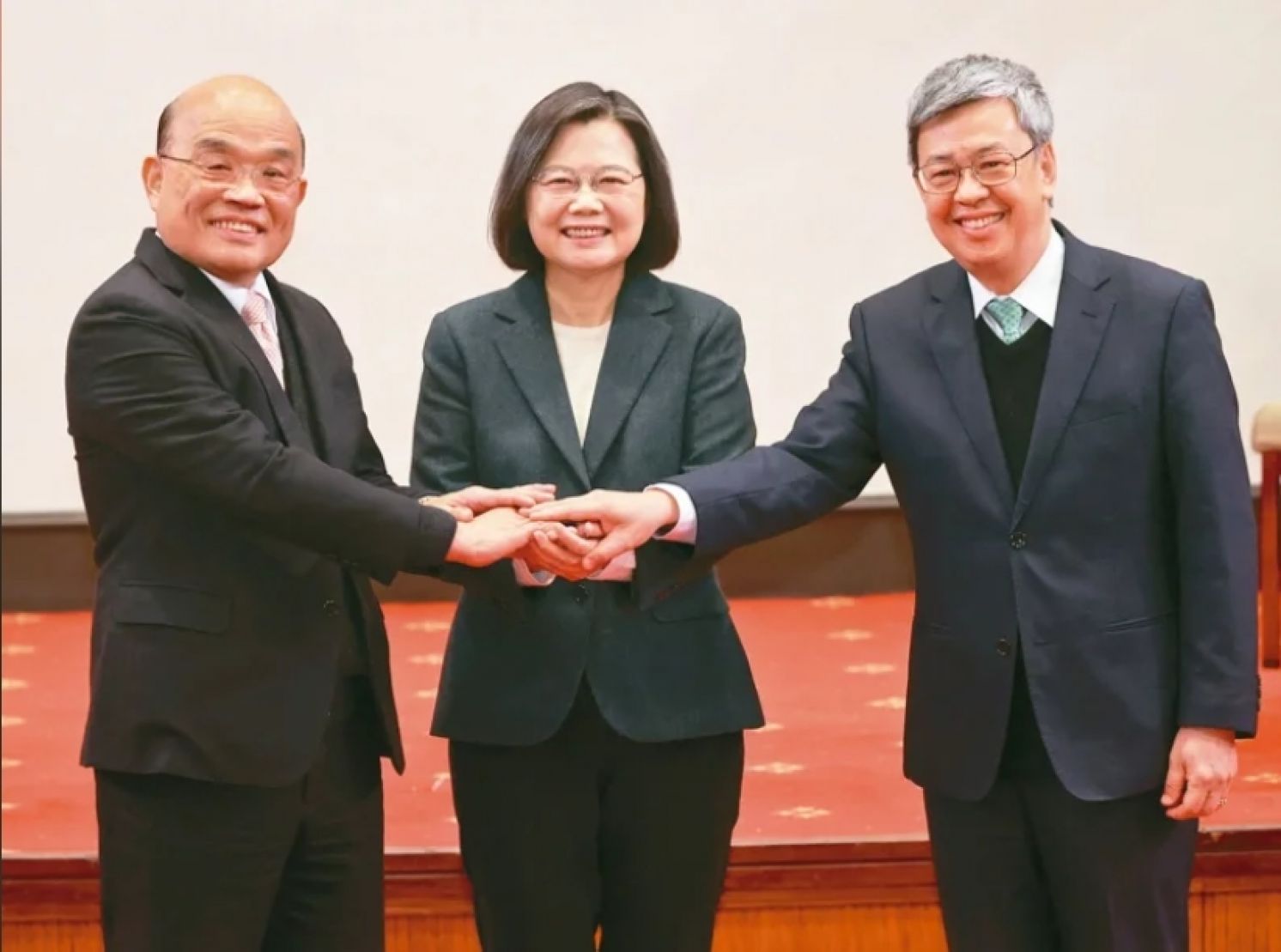
New Cabinet Not Any More Competent
United Daily News Editorial, January, 28, 2023
On the surface, former Vice President Chen Chien-jen was designated to organize the new cabinet, but in substance, Chen was summoned to enter the cabinet, because President Tsai Ing-wen single-handedly dominated the cabinet reshuffle process. Therefore, it is difficult to tell whether the new cabinet is led by Chen or Tsai. The point is, Premier Su Tseng-chang has lost his function as the shield for President Tsai, and the replacing him with smiley-face Chen can at least alleviate some of the grievances by the people, but observers are pessimistic about how long the new shield will last.
Since eight years ago, when Chen served as Tsai’s running mate, his contribution to the Democratic Progressive Party (DPP) has been passive. Chen relied on his academic status and social image to put out the fire of political controversies, rather than using his ability to obtain extra points for government achievements. Four years ago, President Tsai faced challenges from former Premier William Lai in her re-election bid, Chen timely announced that he would not seek re-election, and his withdrawal made the Tsai-Lai team possible. A year ago, Chen suddenly joined the DPP, it was seen as a preventive measure by President Tsai to block Vice President Lai’s presidential ambition. Chen’s appointment as the premier this time is for him to serve as the buffer between President Tsai and DPP Chairman Lai, not because Chen has excellent abilities. And in recent years, because of increasing controversies surrounding him, Chen’s image is far worse than before.
Examining the cabinet reshuffle, after Chen Chien-jen agreed to serve as the premier, President Tsai first discussed personnel appointments with Premier Su Tseng-chang, and they reached agreements on personnel that Su wants to keep in office and those that Tsai would like to appoint. Several days later, Chen began to interview other potential cabinet members. This interaction reflects three facts: First, President Tsai did not respect Chen’s power in organizing the new cabinet. Second, Chen was quite unfamiliar with the functioning of the Executive Yuan and personnel appointments. And third, as President Tsai and Premier Su are meddling in the cabinet reshuffle, it is more difficult to distinguish the power and the responsibility of responsible politics.
Usually, the DPP seems to have many talented people, but at this critical juncture, the DPP is quite constrained. The main purpose of this cabinet reshuffle is to put the recently retired heads of local governments in the central government leadership to show the succession of middle-generation politicians. But because Premier Su did not want to leave office and President Tsai was hesitant in replacing Su, the succession has lost its best timing. Besides, the appointment of former Taoyuan Mayor Cheng Wen-tsan as vice premier was criticized because his master’s degree was rescinded due to thesis plagiarism. The DPP can only find Chen as premier, but he was ridiculed as the salesman for Medigen COVID-19 vaccines. These appointments show that the Tsai administration has lost its sensitivity to public opinion because of its self-acclamation in recent years and the DPP has lost its original vitality.
Observing this cabinet reshuffle, except for the main theme of the appointments of middle-generation politicians, not much prospect can be seen. While Cheng and former Keelung Mayor Lin Yu-tsang have performed well at the local government level, they lack experience at the central government level, so it remains to be seen whether they will do well in their new roles. To analyze the power distribution of DPP’s factions, the new Vice Premier Cheng belongs to the “New Tide Faction”; Secretary-General to the President Lin Chia-lung and Interior Minister Lin Yu-chang belong to the “Taiwan Normal Country Promotion Association” faction; Legislator Kuan Pi-ling of the “Tsai faction” also received an important appointment. This shows that the distribution of factional interests is the major consideration of personnel appointments; with the passing of Lin Kun-hai, leader of the “Hai Faction”, its influence seems diminished.
The problem is, while the DPP’s factions share important positions, it is not necessarily the ideal arrangement for the government mechanism. The new middle-generation cabinet members have experience in politics, but they are not solid professionals in areas of finance, economics, science and technology, and social security. This is not helpful to the strengthening of the decision-making planning and diverse implementation abilities of the Executive Yuan. Even worse, during the four years of the Su cabinet, many officials have developed the habits of becoming arrogant, reckless, and proud, they argued against outside criticisms without scrutinizing themselves. As a result, a very bad bureaucratic culture has been formed. So far, neither President Tsai nor Premier-designate Chen intends to replace many officials who are severely criticized by the people. If they all remain in the cabinet, no matter who dominates, may it be Tsai, Chen, or Su, in the eyes of the people, there is no difference whether the cabinet is reshuffled or not.
The DPP calls Chen’s cabinet the “warmest fighting cabinet,” which is ridiculous. There may be some warmth, but it is not towards the ordinary people; as to “fighting,” who are the enemies? Moreover, the global economy is drastically declining, and Taiwan’s economy in the fourth quarter last year entered a recession. If the cabinet does not consider strengthening its ability to combat financial and economic challenges, what exactly is the new cabinet thinking about?